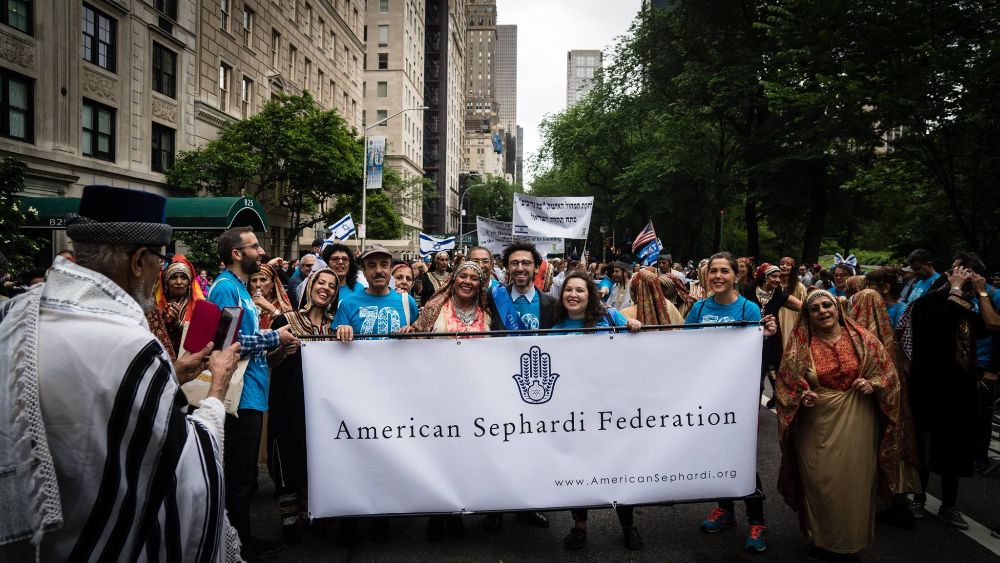Our Failures Don’t Define Us: A Days of Awe Reflection

Dear Friends,
The High Holidays remind us that the Jewish people are great in so far as we are good. We aim high, but there is no expectation for perfection. The Days of Awe between Rosh Hashanah and Yom Kippur are an opportunity to recall the true, the good, and the beautiful—the Tree of Life—as well as to mind the gap (hopefully not too great) between principle and practice.
We are fallible strivers. Sometimes we succeed, and sometimes we fail. Yom Kippur, the Day of Atonement, testifies to the truth that our failures don’t define us: “For a righteous man falls seven times and rises again, but the wicked stumble under adversity” (Mishlei/Proverbs, 24:16).
Those who try to drag us down often do so by pointing to our flaws and crying hypocrisy. Such people will always find material for trolling us because the Torah was not given to angels. It’s no accident that similar attacks are also often levelled against the United States and Israel. The Jewish understanding of human frailty resonates with the American Constitution’s recognition that human beings are self-interested. The American system therefore checks and balances interests in order to create a space for individual freedom. How we use that freedom is up to us.
As Jews and as Americans, let us struggle to ascend in 5784. At the same time, we must be vigilant: within and without our community and country there are bad actors who seek to exploit doubt and sow division by magnifying our flaws so that we lose sight of our purpose and forget that our strength comes through unity.
Remember, we are not defined by antisemitism; the beauty, depth, diversity, and vitality of the Jewish experience is not reducible to a victimhood narrative. And we do not exist to resist antisemitism, but rather to advance a particular, positive purpose in the world.
Let us, then, count our blessings and strive to realize our teudah—what Hakham Ben Zion Meir Hai Uziel, the first Sephardi Chief Rabbi of Israel, called the Jewish mission. According to R’Uziel, “Judaism’s teudah is nothing less than the exalted aspiration to elevate humanity… to the highest level of human perfection.” This vision extends to embrace human excellence in the “scientific… artistic, economic and aesthetic” dimensions of life, so long as the actions are undertaken “for the sake of heaven.”
In the political realm, Hakahm Uziel wrote: “Judaism does not aspire to change the order of the world and the values of life. Rather, its great aspiration is to abolish religious and political rule that exploits and abuses, dominates and oppresses….”
Following R’Uziel’s lead and informed by the magnanimous message of the Days of Awe, the American Sephardi Federation invites you to join us in 5784 as we enlighten and empower the Jewish future.
The ASF articulates a rich and robust Sephardic voice on campus, in the American Jewish community, in American society, and around the world. With your help, we can go from strength to strength in our Jubilee Year!
Best Wishes for Sweetness & Light!
Dulce lo vivas & Tizku l’Shanim Rabot,

Executive Director, American Sephardi Federation
P.S. For more information about sponsorship opportunities, donating securities, or planned giving options, please email info@americansephardi.org or leave a message at 212.294.8350. A financial professional from AllianceBernstein is standing by to speak with you. To donate by mail, please send a check payable to “American Sephardi Federation” to 15 W 16th St., New York, NY, 10011.
~~~~~~~
Rosh HaShanah Prayers in the Meir Tweig Synagogue, Baghdad, Mid-1990s

Rare video footage of the last Iraqi-Jewish community praying in the Meir Tweig, the only functioning synagogue by the mid-1990s in a city (Baghdad) that once boasted over 45. Watch the blowing of the shofar, singing of the “Hon Tahon” piyyut (at 11:16), and musaf prayer. “Hon Tahon” or its overall composition, “Bat Ahuba,” is a part of the liturgy of the majority of the Sephardic Diaspora.